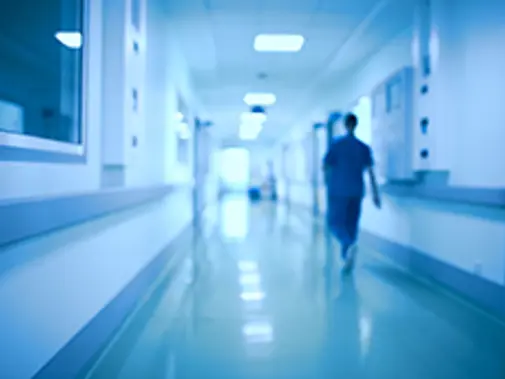Over the next few weeks and months we are going to hear a lot about winter pressures and talk of ‘normal’ winter pressure and ‘COVID’ winter pressure.
Put bluntly the winter months have always been hard for the health service – coughs and cold in the old, frail, clinically vulnerable and very young can easily tip over from something that can be managed at home into something serious that needs hospital care.
And this has a knock-on effect, with more patients in hospital, the system struggles to keep going with planned surgeries and more routine care.
But with COVID, and the additional pressure it is putting on hospital beds, it’s going to get worse. There is no slack or wriggle room in the system; we are not discharging patients in a way that keeps pace with admissions and as the COVID dashboard now clearly shows, our hospitals and medical staff now have more patients than they can cope with.
Calling it ‘pressure’ doesn’t maybe accurately or adequately sum up the situation. But nor it is an explosion. What we are seeing is our whole health system crumble very slowly in front of us.
Patients want normal services and routine operations to resume but frankly this isn’t going to happen this side of Easter 2022. Increasingly it is going be clear that not every part of health service is going to be able to function as trusts have to concentrate staff and resources in those areas under most pressure and where there are the most and sickest patients.
Alongside the usual winter pressures, and the difficulties COVID patients place on every part of the service, there are also a huge and growing number of patients on waiting lists who need treatment.
Many patients on waiting lists are not seriously ill but are suffering with issues that affect their quality of life. But in some ways for those people it’s easier, at least they are already in ‘the system’, it is the people who are well now but get sick who really need to worry.
In conversations I have with my patients they are always clear about what they value most in their NHS. They want rapid access to their GPs when they are sick. If they have to go to the emergency department they want to be seen there quickly and treated or admitted in a timely way.
They want children, pregnant woman and older patients prioritised and they want cancer patients looked after so that they aren’t put at risk.
The NHS in Northern Ireland is a limited resource and it’s there for all of our citizens, so ensuring that priorities are clearly defined and marshalled will reassure these more vulnerable groups. But will be of little comfort to everyone else.
I worry that we have become so imbued to a dysfunctional system that we now accept it as normal and in some way acceptable.
The public have made it clear to politicians that they wanted restrictions eased and this will inevitably result in an increase in Covid infections and increased demands on GPs and hospitals.
With rights comes responsibilities and people need to know that with the return of freedoms will come reduced access to healthcare as services are overwhelmed with COVID, although make no mistake, our system was always struggling but COVID has brought it close to the edge.
This will be the worst winter ever for the NHS in the UK. Routine services will have to make way for emergencies and vital services for vulnerable groups. If you want to help, get vaccinated for Covid and flu so that you are less likely to need care.
We will need the public to continue to be understanding about how services are prioritised. We will need to maintain kindness, civility and respect for patients and for staff who are worn out and stressed by their efforts over the last 20 months.
Tom Black is BMA Northern Ireland council chair

